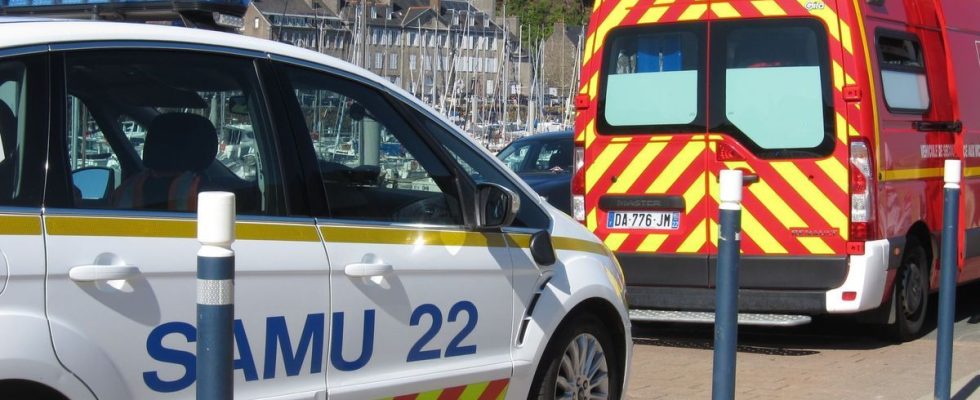Published on
Updated
Reading 3 mins.
A few months ago, a 48-year-old resident of Aude was refused dispatch after a call to the Samu. The man, however, made five cardiac arrests and was able to be saved. How is the regulation when you call 15? The explanations of Dr Christophe Prudhomme, emergency doctor at Samu 93.
Here is the story of Thierry Aniorte, 48, victim of several cardiac arrests on September 30, 2022. His story is reported by our colleagues at 24mornings. While Thierry Aniote is at work, he feels bad for the first time and is unwell, accompanied by chest pain.
Five cardiac arrests but no help
After this first episode, he tries to join the rescue, with the help of a colleague. The regulating doctor replies that “his chest pain is probably due to a lung infection and he should contact his doctor“. However, the man will not get better and it is finally thanks to his son, a firefighter, that he will join the hospital. He will have a total of five cardiac arrests but will be saved, thanks to the caregivers.
The story of this inhabitant of Aude questions: how is the regulation at the Samu going? What criteria do doctors use to decide whether or not to intervene? Dr. Prudhomme, emergency doctor at Samu 93, reveals to us how the regulation of Samu works.
“When you call 15, you first come across a medical dispatch assistant. He is not a doctor, but a person who is trained to triage calls. She takes the contact details of the person, the where she is and based on an initial questioning, determines whether she should pass the call to a regulating doctor of general medicine or a regulating doctor of the Samu“explains first of all the emergency doctor.
About 5% of calls are misdirected by assistants
During this first step, errors are possible. “It is estimated that at this first stage, 5% of calls may be incorrectly estimated by dispatch assistants. But it is still possible to correct the shot when the call is made to the doctor” adds Christophe Prudhomme.
But medicine is not an exact science and again, errors are possible. For Thierry Aniorte’s story, the doctor thinks that the fact that the man calls himself may have been confusing. “If he was unconscious, the doctor would have sent help. On the first call, we can understand that he did not do it, given the limited number of means at our disposal”.
A second call that needs to be taken by another doctor
On the other hand, on the second call from the victim, the emergency services should have been triggered, according to Dr Prudhomme. “The golden rule in dispatch is to take a second call like a first, without preconceptions about the situation. Moreover, as far as possible, we try to have another doctor, so that he can analyze the situation with a fresh eye. The error here is that the regulating physician persisted and did not change his diagnosis. When we suspect a cardiac arrest, we dispatch the firefighters on the spot, because their territorial network is more important and they are trained to use a defibrillator, then we also send the Samu on the spot, with the victim “.
“It is the consequence of the lack of means that we suffer”
This type of story is unfortunately more and more recurrent. “If the regulating doctor has made a mistake, it is also necessary to recall the context in which he works. The situation is more and more complex for emergency relief, with services closing, as in the department of Aude, precisely” adds the paramedic.
“This is the consequence of the strategy adopted by the President of the Republic and the Minister of Health. The fact of having to call 15 systematically to be seen in the emergency room overwhelms the call centers, which work under pressure and with few resources. Inevitably, there are mistakes and the victims must file a complaint to trace the chains of responsibility and highlight all these problems in order to correct them. Otherwise, no doctor will want to regulate for the emergency services.” he concludes.
